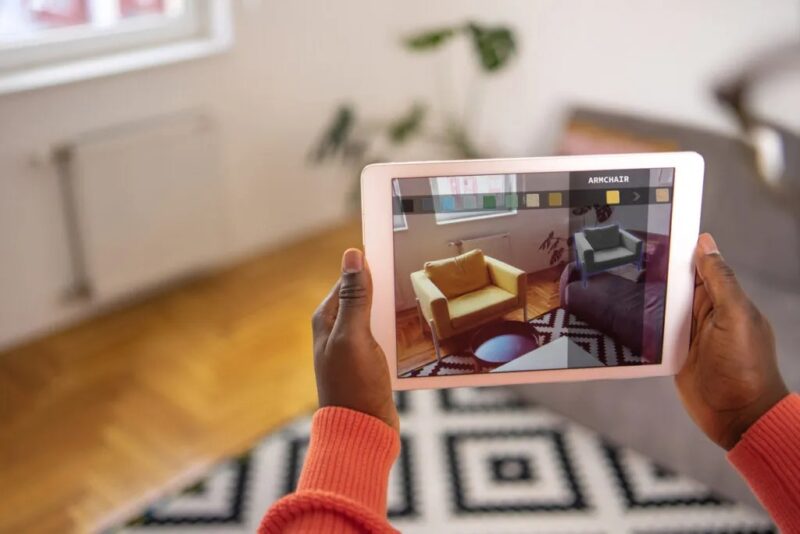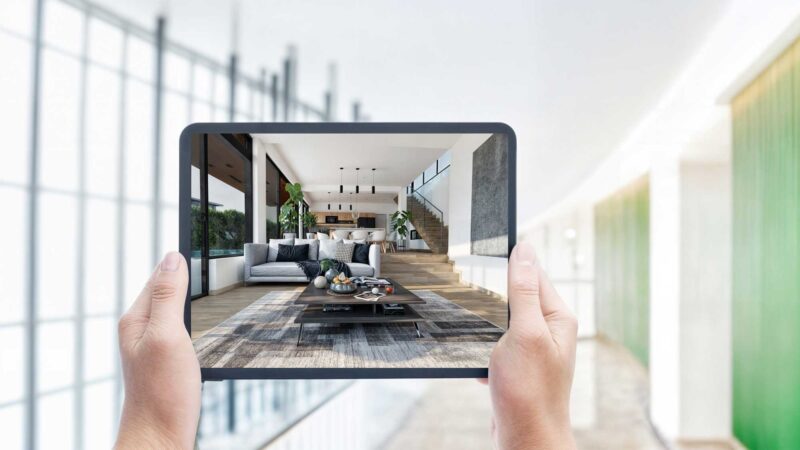In the fast-evolving landscape of real estate, technology has emerged as a powerful catalyst, transforming traditional practices into innovative experiences. Among these advancements, augmented reality (AR) stands out as a game-changer, reshaping how buyers and sellers interact with properties.
Imagine walking through a virtual home, visualizing renovations before they happen, or even staging a house with the tap of a finger—these possibilities are no longer mere fantasies but tangible realities that AR brings to the table. As agents and clients alike embrace these immersive tools, the real estate market is witnessing a seismic shift.
From enhancing property tours to streamlining the decision-making process, augmented reality is not just augmenting spaces; it’s redefining the very essence of home buying and selling. In this article, we explore how AR is revolutionizing the real estate market, unlocking new potentials and creating unparalleled opportunities for all stakeholders involved.
The Emergence of Augmented Reality: A Game Changer for Real Estate

The emergence of augmented reality (AR) marks a transformative shift in the real estate industry, propelling the way properties are marketed and experienced like never before. Imagine stepping into a vacant house and being instantly immersed in a vividly rendered visualization of potential interiors, where furniture arrangements and color schemes come to life in real time.
This technology transcends traditional listings, offering buyers not just a glimpse, but an interactive exploration of spaces that can help them envision their future lives. Agents are now armed with tools that allow them to craft immersive experiences, drawing in potential buyers through engaging virtual tours that can be accessed from anywhere in the world.
As AR blurs the lines between the digital and physical realms, it reshapes expectations, creating a new narrative in home buying—one that is more personal, informed, and undeniably exciting.
Augmented Reality Tools for Real Estate Agents
Augmented reality (AR) tools are transforming the way real estate agents showcase properties, enabling them to deliver immersive experiences that were once unimaginable. Imagine walking through a listing without ever leaving your home—AR applications allow potential buyers to visualize every nook and cranny in stunning detail.
These innovative tools can place virtual furniture in empty spaces, allowing clients to envision their future lives within the walls of a house. Moreover, agents can leverage AR to demonstrate renovation possibilities or highlight the unique features of a property with interactive elements.
As competition in the real estate market intensifies, those who embrace these technologies not only enhance their marketing strategies but also foster deeper connections with clients, turning a mere viewing into an unforgettable experience. The future of property sales has arrived, and its vividly augmented.
The Future of Property Development: Visualization and Planning

The future of property development is poised to be transformed by innovative visualization and planning technologies, particularly through the application of augmented reality (AR). As developers embrace AR, they unlock the ability to superimpose virtual structures onto real-world sites, allowing stakeholders to navigate through lifelike representations of potential projects before a single brick is laid.
Imagine walking through a bustling urban environment and seeing future skyscrapers emerging from empty lots, their designs shimmering in the sunlight. This immersive experience not only enhances aesthetic understanding but also streamlines the decision-making process, enabling quicker adjustments to designs based on feedback from clients, investors, and the community.
Furthermore, AR empowers architects and planners to anticipate challenges, visualize outcomes, and refine layouts dynamically, turning conventional blueprints into vivid, interactive journeys. Looking ahead, the integration of AR into property development promises to forge more sustainable, community-focused spaces, resonating with the needs and aspirations of future generations.
Conclusion
In conclusion, augmented reality is transforming the real estate market by enhancing the way properties are showcased and experienced. This innovative technology allows prospective buyers to visualize homes more vividly, making it easier to make informed decisions without the constraints of physical visits.
From virtual staging to interactive property tours, AR enriches the buying and selling process, making it more efficient and engaging. As the real estate sector continues to embrace these advancements, companies like https://gordonbuyshomes.com/we-buy-houses-los-angeles/ are likely to benefit from enhanced buyer engagement and satisfaction. As AR technology evolves, its potential to reshape the landscape of real estate will undoubtedly lead to new opportunities and streamlined transactions for all stakeholders involved.


